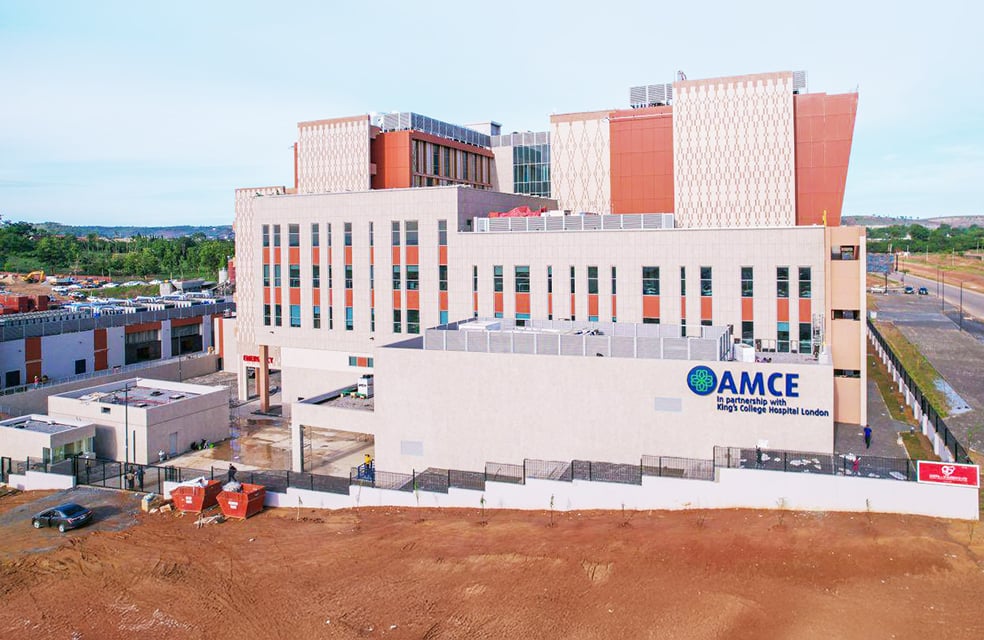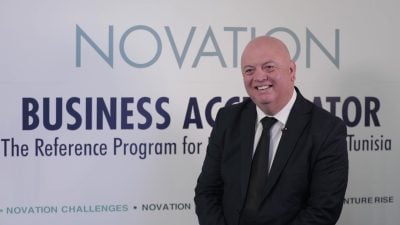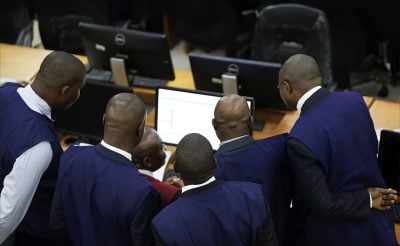This article was produced with the support of Africa Collective
Amid geopolitical fragmentation, protectionist shifts and ongoing global uncertainty, Africa is moving forward with purpose. Regional integration through the African Continental Free Trade Area (AfCFTA), coupled with infrastructure expansion, industrial diversification, technological advancement and a thriving creative economy, continues to drive the continent’s upward trajectory.
To sustain and accelerate this momentum, it is essential to harness the interconnected power of trade, investment, infrastructure and technology to strengthen self-reliance and deepen economic linkages across the continent.
Setting the scene: Africa in a changing global order
The close of 2025 marks a pivotal moment for Africa’s global economic engagement. The expiry of the African Growth and Opportunity Act (AGOA), combined with disruptions in global trade and higher tariffs on key African exports, is reshaping external relationships. This creates an opportunity for recalibration and renewed emphasis on intra-African trade. At the same time, South Africa’s presidency of the G20 group of nations and its business counterpart the B20 places the continent at the centre of international policy dialogue. It offers a unique opportunity to integrate African priorities into global frameworks and advocate for more equitable trade, investment and financing systems.
Through its continued presence in Davos, Africa Collective, together with the AfCFTA Secretariat and the African Export-Import Bank (Afreximbank), showcases Africa’s economic leadership and ambition. The 2026 edition of Africa Collective Davos will focus on connecting the continent’s physical and digital infrastructure with its trade and investment priorities to fuel the next phase of growth.
Building on last year’s momentum, this year’s focus signals a transition from potential to acceleration, reflecting Africa’s determination to shape its own growth narrative.
Building transformative infrastructure
Infrastructure remains both the backbone and the catalyst of Africa’s development. It is estimated that the continent must invest more than $170bn annually to close existing gaps across transport, energy, water and telecommunications.
Achieving this scale requires coordination between governments, development finance institutions and the private sector.
Investment in digital infrastructure is equally vital. Across the continent, data centres, broadband networks and e-commerce platforms are enabling Africa’s participation in the digital economy and facilitating cross-border trade.
These systems are crucial for efficient logistics, financial inclusion and supply chain transparency. By building digital ecosystems that support trade, investment, healthcare and education, Africa is laying the foundation for inclusive, technology-enabled growth.
Driving industrialisation and health innovation
Africa’s next leap depends on value addition, industrial diversification and stronger regional value chains. The continent’s growth cannot rely solely on the export of raw materials.
To advance this shift, Afreximbank, in partnership with ARISE Integrated Industrial Platforms (ARISE IIP), is co-developing industrial parks and special economic zones across several countries. The Africa Textile Renaissance Plan, implemented with textile machinery manufacturer Rieter AG, is one of the first initiatives to bring this vision to life. It establishes regional manufacturing ecosystems that transform locally grown cotton into globally competitive textiles and garments, reducing reliance on imports and strengthening regional supply chains.
Financiers and investors continue to play a pivotal role in enabling this expansion. They are structuring complex cross-border financing arrangements and mobilising private capital for manufacturing, logistics and renewable energy ventures.
At the same time, innovation in healthcare is emerging as a complementary driver of industrialisation. Although shifting global priorities have led to the reallocation or withdrawal of some funding streams, growing investment in infrastructure and technology, combined with stronger local resource mobilisation, is opening new avenues to strengthen health systems and expand access to care.
Pharmaceutical corporation Novartis continues to invest in Africa’s knowledge economy through research, innovation and supply-chain strengthening. These efforts demonstrate how industrialisation and healthcare advancement can reinforce one another, enhancing human capital, improving productivity and supporting sustainable growth.
Strengthening regional health systems
The African Medical Centre of Excellence (AMCE) in Abuja, spearheaded by Afreximbank in partnership with King’s College Hospital, London, and the Federal Government of Nigeria, represents one of the most significant healthcare investments on the continent. Designed as a tertiary-care and research facility, the AMCE will provide advanced oncology, cardiology and haematology services while training the next generation of African medical professionals.
This initiative reflects a growing recognition that healthcare is both a social and an economic priority. By developing regional centres of excellence, Africa is enhancing resilience and reducing reliance on imported medicines and external expertise.
Integrating technology for growth
Technology is the connective thread across Africa’s development. Digital platforms now underpin trade logistics, financial inclusion, education and healthcare delivery. From the Pan-African Payment and Settlement System (PAPSS) to fintech innovations, Africa’s digital transformation is improving efficiency, transparency and inclusion. According to the World Bank, Africa’s digital economy could contribute $180bn to GDP by 2025 and more than $700bn by 2050 if connectivity and regulatory reforms continue to accelerate. Investments in fibre networks, data centres and digital entrepreneurship are key to this transformation.
At Davos 2026 Africa Collective will highlight how digital tools amplify trade and investment across sectors. The discussions will emphasise technology’s role in shaping a more integrated, competitive and innovative Africa.
The Africa Collective Davos 2026 programme
The Africa Collective Davos 2026 programme follows the recent relaunch of Africa Collective as a unified global Africa platform, positioned to convene visionary leaders and organisations around Africa’s most pressing priorities. Under its expanded thematic structure known as Africa Collective Circles, the platform now connects key sectors including infrastructure, healthcare, ventures and creative industries providing more opportunities for collaboration.
Throughout Davos Week, the Africa Collective Hub will host high-level engagements, including thematic panels, deal rooms, roundtables, networking receptions, a closing and outlook luncheon and the Africa Collective Ideas Lab, where innovative partnerships and models will be developed. It will include a glass pavilion, member and partner lounge, suites and a chapel, offering both public visibility and private spaces for strategic engagement. This expanded presence reflects the continent’s growing influence within the global business and policy community.
Charting a unified course forward
Africa stands on the threshold of a decisive decade. Its future depends on aligning trade, investment, infrastructure and technology while unlocking the potential of its youthful population. Moving beyond its long-documented promise, the continent now faces the challenge of coordination and delivery at scale.
Africa Collective Partners demonstrate what is possible when public and private actors collaborate toward shared goals. The task ahead is not only to participate in the global economy but to shape it, defining an African model of growth that is inclusive, innovative and self-sustaining.
From 19 to 22 January 2026 the Africa Collective will convene global and pan-African stakeholders to the Africa Collective Hub in Davos to engage in the conversations and partnerships driving Africa’s next leap.
Taking place at the centrally located Hard Rock Hotel in Davos, the event will bring together key decision-makers and visionaries from the business, investment and public sector communities to engage in discussions of strategic importance to Africa’s economic future. For more information visit www.africacollective.com

 Sign in with Google
Sign in with Google 



